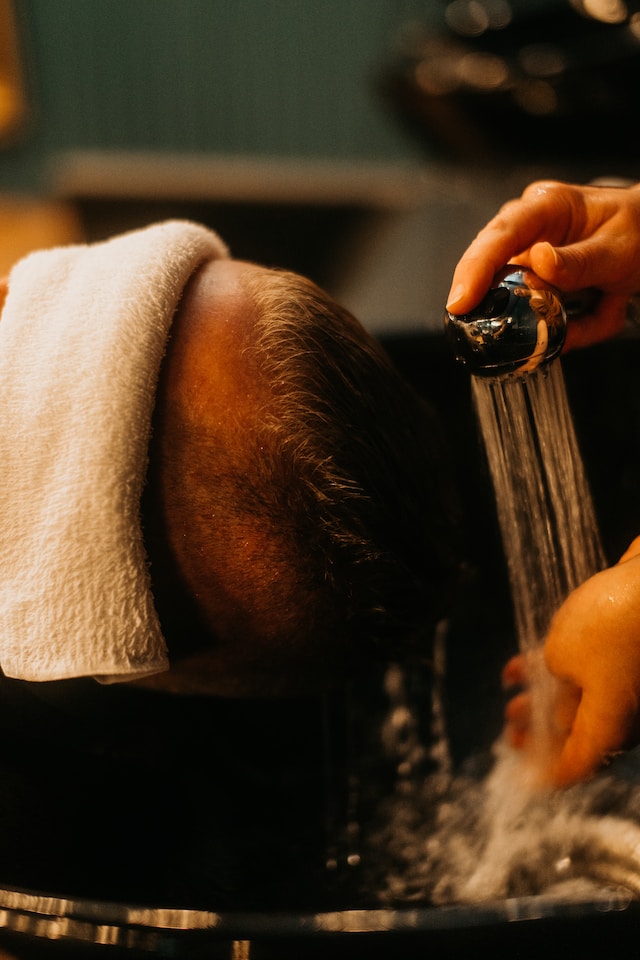Introduction: Many people believe that washing their hair every day is necessary for cleanliness and maintaining healthy hair. However, experts suggest that daily washing may actually be doing more harm than good. In this article, we will explore the reasons why washing your hair every day may be detrimental to its health and offer alternatives for maintaining clean and vibrant hair without excessive washing.
- Stripping Natural Oils: One of the primary reasons why daily hair washing can be harmful is that it strips away the natural oils produced by the scalp. These oils help moisturize and protect the hair, keeping it healthy and shiny. Overwashing can lead to an imbalance, causing the scalp to produce even more oil to compensate for the oils that are continuously stripped away. This can result in greasy hair and an unhealthy scalp.
- Dryness and Damage: Frequent washing can also lead to dryness and damage to the hair shaft. The natural oils produced by the scalp act as a protective barrier, keeping the hair moisturized and preventing breakage. By washing too often, you are effectively removing this natural protection, leaving the hair more susceptible to dryness, frizz, and brittleness. This can result in split ends, breakage, and overall lackluster hair.
- Disrupting the Scalp’s Microbiome: The scalp has its own microbiome, consisting of beneficial bacteria that contribute to a healthy scalp environment. Daily washing can disrupt this delicate balance, stripping away not only the natural oils but also the beneficial bacteria. This can lead to an imbalanced scalp microbiome, potentially causing issues such as scalp dryness, itchiness, and dandruff.
- Color Fading: If you have colored or chemically treated hair, daily washing can accelerate color fading. The frequent exposure to water and shampoo can cause the color molecules to wash out more quickly, resulting in a shorter lifespan for your hair color. To maintain vibrant color and prolong its longevity, it is often recommended to reduce the frequency of washing.
- Time and Convenience: Daily hair washing can be time-consuming and inconvenient, especially for individuals with busy schedules. Spending excessive time on hair washing and styling can take away from other important activities. By reducing the frequency of washing, you can save time and simplify your hair care routine.
- Alternatives to Daily Washing: To maintain clean and healthy hair without daily washing, consider these alternatives:
- Dry Shampoo: Dry shampoo is an excellent option for refreshing your hair between washes. It absorbs excess oil and adds volume, allowing you to extend the time between washes while still maintaining a clean and fresh appearance.
- Co-Washing: Co-washing involves using conditioner instead of shampoo to cleanse the hair. This method helps retain moisture while gently cleansing the hair, making it a suitable alternative for individuals with dry or curly hair.
- Scalp Cleansing: Instead of washing the entire length of your hair, focus on cleansing the scalp. By massaging the scalp with water and a gentle shampoo, you can remove dirt and buildup without excessively stripping the hair’s natural oils.
- Protective Hairstyles: Opting for protective hairstyles, such as braids, buns, or updos, can help keep your hair clean for longer periods. These styles help reduce exposure to environmental factors and minimize the need for frequent washing.
Conclusion: Washing your hair every day may be doing more harm than good. Excessive washing can strip away natural oils, lead to dryness and damage, disrupt the scalp’s microbiome, and fade hair color. By reducing the frequency of washing and exploring alternative methods like dry shampoo, co-washing, scalp cleansing, and protective hairstyles, you can maintain clean and healthy hair while preserving its natural moisture and overall vitality. Remember, finding the right balance and listening to your hair’s needs are key to achieving and maintaining beautiful and manageable hair.




